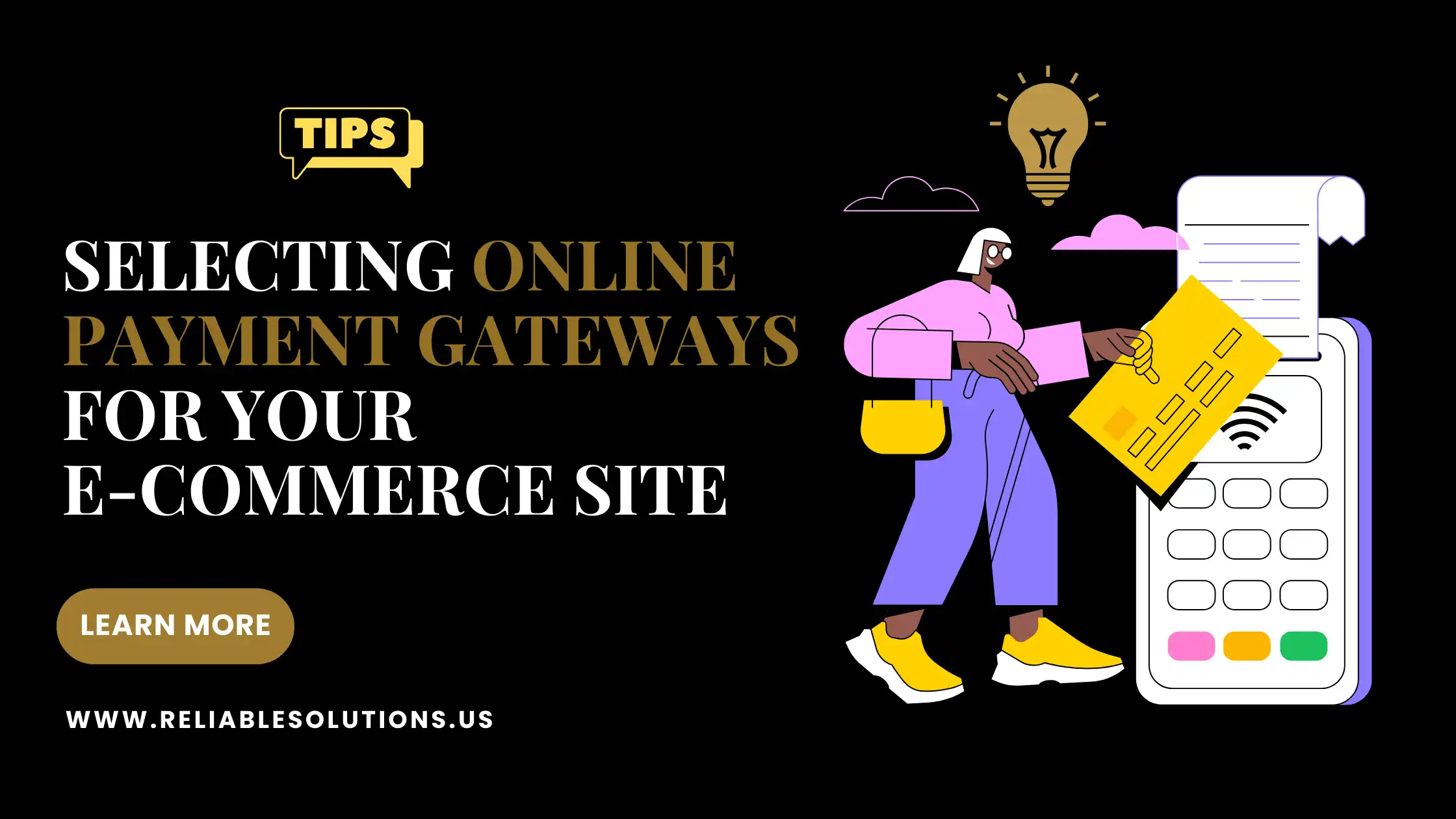Selecting the right online payment gateway for an e-commerce site is a critical decision that can significantly impact the success and operational efficiency of your online business. Here are detailed tips to guide you through the selection process:
1. Security Compliance and Measures: The top concern when choosing the payment gateway should be the safety of your customers’ payment details. One should always consider the payment gateways that follow the Payment Card Industry Data Security Standard (PCI DSS) and provide extra security measures like complete encryption and tools for spotting and stopping fraud. This does more than just safeguard your customers—it also helps to establish trust in your brand.
2. Payment Methods Supported: Different customers have different preferences when it comes to payment methods. Offering a wide range of options, including major credit cards, debit cards, digital wallets (such as PayPal, Apple Pay, and Google Pay), and even buy now, pay later (BNPL) services, can enhance customer experience and potentially increase your sales.
3. Integration Ease and Compatibility: The payment gateway should seamlessly integrate with your e-commerce platform. Easy integration reduces setup times and potential issues, ensuring a smooth operation. Another factor to consider is the compatibility between your website’s design and mobile responsiveness which also helps to provide a seamless shopping experience.
4. Transaction Fees and Charges: Understand the fee structure of each payment gateway. This includes transaction fees, monthly fees, setup fees, and any hidden charges. Comparing these costs across different gateways can help you find a cost-effective solution that fits your budget and business model.
5. Global and Local Payment Processing: If you’re targeting customers beyond your local market, consider a payment gateway that supports multi-currency transactions and is capable of handling international payments. Also, be aware of the specific payment preferences of the regions you are targeting.
6. Customer Experience: The checkout process should be straightforward and quick. A payment gateway that offers a simple, one-page checkout can reduce cart abandonment rates. Also, consider gateways that allow customization of the checkout page to match your brand.
7. Customer Support and Service Level Agreements (SLAs): Reliable customer support is essential for addressing any issues that may arise. Look for gateways that offer 24/7 support through multiple channels. Additionally, review their SLAs to understand the guaranteed uptime and the level of support provided.
8. Analytical and Reporting Tools: Some payment gateways offer built-in analytics and reporting tools that can help you understand your sales patterns, refund rates, and other important metrics. These insights can be invaluable for making informed business decisions.
9. Regulatory Compliance and Future-proofing: Ensure the payment gateway attaches to all relevant regulations and laws in your market. Also, consider whether the gateway is keeping pace with technological advancements and evolving consumer preferences to future-proof your payment processing needs.
10. Reputation and Reliability: Research the payment gateway’s track record for reliability and customer satisfaction. Online reviews, case studies, and testimonials can provide valuable insights into the gateway’s performance and service quality.
By carefully considering these factors, you can choose an online payment gateway that not only meets the current needs of your e-commerce site but also supports its growth and evolution over time.





